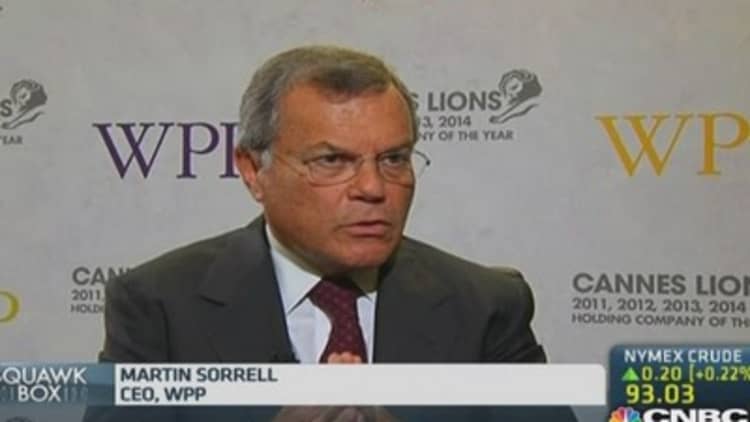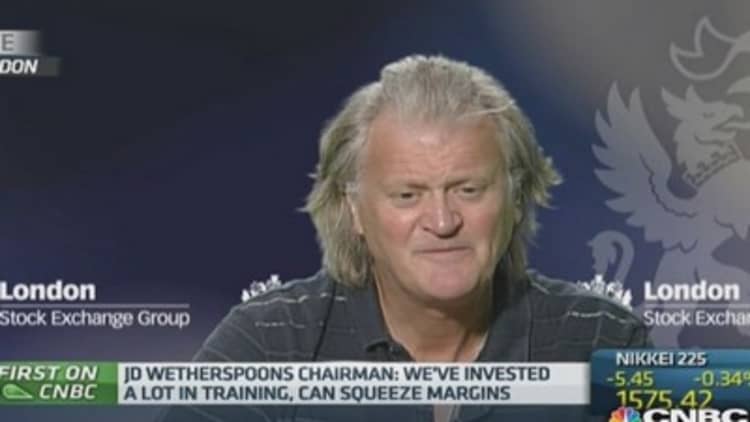
A host of leading business figures in the U.K. has come out against Scottish independence on economic grounds - but is this just "scaremongering", as Alex Salmond, the politician leading the campaign claims?
In the No camp are a host of companies saying they would relocate down south in the event of a "yes" vote. Banks RBS, Clydesdale, TSB, Lloyds and Tesco Bank, who employ 35,000 people in Scotland, said they would move their bases to London to avoid the economic uncertainty around independence – although RBS was careful to stress this shouldn't mean any job losses.
These banks rely on the Bank of England as a lender of last resort, and with uncertainty around setting up an independent central bank for an independent Scotland, as well as whether Scotland could use the pound, they will seek the certainties of a London base.
Insurers Aegon and Standard Life have joined the fray pledging to move south. There have also been warnings from supermarket chains that food prices could be affected.
Well-known Scottish-born historian Niall Ferguson claimed he would apply for a U.S. passport in the event of a "yes" vote.
The sudden flurry of companies warning they would move to London may be the result of a co-ordinated last-ditch effort from the government to keep Scotland in the U.K., as some in the Yes camp have suggested, or it may just be prudent flagging of their plans to shareholders.
Yet is it enough to sway the crucial undecided voters in this campaign?
They may not like any suggestion that they are being told what to do.
One of the features of the entire referendum campaign has been the London-based elite, including many of Scottish birth, blithely dismissing the chances of a pro-independence vote, until the shock of a YouGov poll last weekend showing a very slim majority in favor of independence.
And there are a few well-known figures in the business world backing the independence campaign.

One of the economic arguments behind the "yes" campaign has been that Scotland could be more competitive by cutting corporation tax – much like neighboring Ireland, although the comparisons by the "yes" campaign have been less frequent since Ireland's bailout by international lenders. Comparisons with New Zealand, Switzerland and Singapore are more flattering.
"There's no reason in theory why Scotland shouldn't do very well," Tim Martin, founder of the U.K. pub chain J.D. Wetherspoon, told CNBC.
He argued that a reduction in VAT for pubs by an independent Scotland (which is a policy Wetherspoons has been lobbying for) would be great for business.
Sir Martin Sorrell, CEO of the world's largest advertising group WPP, told CNBC an independent Scotland could "mirror Singapore" in "marketing, trade and investment."
Rupert Murdoch, the News Corp founder and chairman with Scottish antecedents, who is known to be a fan of Salmond, has hinted in recent days he may throw the formidable backing of the Scottish Sun behind the "yes" campaign.
"Scots better people than to be dependants of London," he tweeted, after saying he was "wrestling" with the Scottish vote.
- By CNBC's Catherine Boyle.





